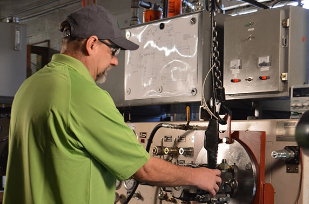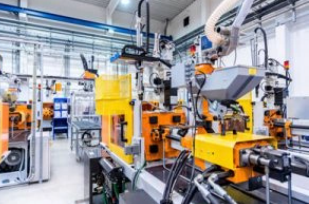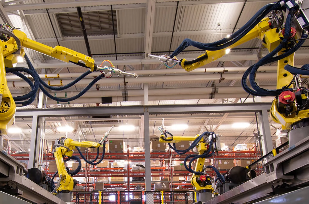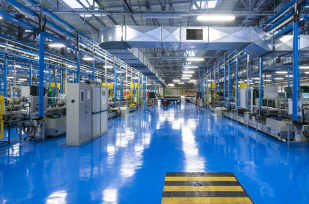This new year is already halfway through, and it is time to think about all the new technologies that are available for improving manufacturing processes. New concepts such as the Internet of Things, Artificial Intelligence and green practices are all at the forefront of a fascinating surge of technology that is constantly driving new innovations. Whether companies are positioned to take advantage of these ideas or not, they need to understand them and be able to act when the time is right.
Businesses are Opting to Reshoring Their Manufacturing
Reshoring is the term used to describe the process of bringing businesses back to the United States, as opposed to the trend over the last many decades of outsourcing manufacturing and supplies from other countries. This has become a sensitive subject lately and even more so after the 2016 election and because of many recent problems with the products and processes of suppliers from overseas. There have been several instances this past year of defective products and components manufactured in other countries, resulting in negative consequences for the companies involved and recalls of the offending products.
One company at the forefront of the recent wave of scandals is Kobe Steel, one of Japan’s largest steel manufacturers. The company admitted in October, 2017, that it had been providing falsified quality checks for a period of many years. Despite Kobe’s subsequent compensatory efforts directed toward their buyers, the fact remains that their possibly substandard products are being currently used in transportation, infrastructure, shipping and aviation, with incalculable consequences.
As a result of this and other like problems with overseas manufacturing, more companies in the United States are forging new relationships with domestic suppliers in order to be assured of receiving products that meet strict safety and quality standards as set by federal regulations. Using locally sourced suppliers also results in lower costs, better communication with the partnering companies and a closer relationship with the other sites, which provides faster solutions if needed for any problems that may arise.
Going Green is the Best Practice
Companies are increasingly lowering their environmental impact in so-called “green” manufacturing methods. The benefits of implementing methods that have a smaller impact on natural resources are becoming increasingly evident and result in lower costs and higher efficiency. The companies also reap the additional effects of public perception from their responsible business practices, drawing in today’s consumers who are more informed about taking care of the environment.
Besides the obvious and immediate effects of using cleaner manufacturing processes, companies are also becoming more efficient at using and reusing their resources. This is commonly referred to as the circular economy, a “take, make and dispose” method of utilizing resources by using them as long as possible, then recovering and recycling them into renewed purposes. This prevents waste and allows for a better direction of energy.
Regardless of the people in leadership positions in the future, the forward movement of this eco-friendly way of doing business will continue to increase in reach and progress. Tax and other types of incentives will proliferate, and companies will be required to meet more stringent laws.
Cloud Technologies
Being hacked is a cost of doing business these days if a company is large and well-known. It has become such a problem that countries are moving to help protect companies in their jurisdiction. Data mining is rampant and industrial espionage uses technology to infiltrate the cyber systems of various companies. As a response, companies are combating cyber attacks with the use of cloud-based technologies.
This cloud-based solution is typically placed between the users and the websites and in front of the private backend of the network platforms. The cloud provider will monitor the network use and analyze it for patterns of suspicious use. This analysis will prevent attacks and allow for only safe traffic to occur. Not only will the companies gain security, they will also save money from a storage mechanism that uses less storage space and requires less maintenance.
Everyone and Everything is More Connected
Connected technology is not just present in home appliance, cars and mobile devices. It is imbedded in apparel, lawn care devices, furniture and a myriad of other items. These are all part of the “Internet of Things”. These things can communicate with each other and transfer data back and forth. Companies are using this technology to speed and streamline their equipment and purchases through the use of networks.
This smart technology is currently most often used in homes and on personal devices but is becoming more available in professional and workplace settings. Not only can this technology be used in assembly lines and with transportation units, but it has the potential to provide statistical analysis on data and proactive maintenance on buildings and products. Ultimately, artificial intelligence will be able to help with decision making, market evaluations and human resource tasks. It is predicted that by the year 2035, manufacturing concerns will have an additional combined gross value of four million.
These are exciting times to live in, and these trends are just the beginning of what is to come. Businesses will continue to grow, and everyone will prosper by the implementation of these practices and ideas. Manufacturers need to be ready to join their successful counterparts in the new deal.





